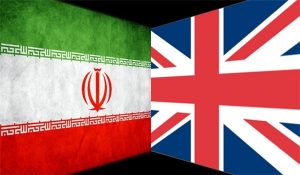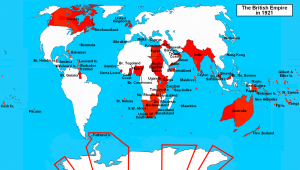The British Labour Party Uses Humanitarian Assistance as a Means of International Diplomacy In the Twenty-First Century
The British Labour Party’s Attitudes and Policy Ideas Towards the using of Humanitarian Aids as a Means of International Diplomacy
Relinquishing India can be considered an appropriate start and case study to investigate the attitudes and policy ideas of British Labour party towards the process of decolonisation of the British Empire, the establishment of the Modern Commonwealth, and thus the roots of using humanitarian aids as a means of international diplomacy in the Twenty-First century. This approach is taken for two reasons. Firstly, the British political elite had always regarded India a ‘jewel’ of the British Empire, it could be said that in fact one of the reasons that the British Empire became so vast in the East was to protect India. It was always believed that if the Empire lost India the other colonies would follow suit. Such a belief became a reality once India won independence from Britain, the rest of the colonies in Asia and Africa followed India’s path. We could go as far as saying that, in the developing world, India became a model for political independence. The second reason for selecting India as a case study is due to the fact that the Indian question had indeed become a pressing issue for the Labour Government of 1945-51 and therefore they had the urge to come to grips with it. This was because the situation in India was getting more and more dangerous.
For decades the ultimate transfer of power to India had been foreseen, but not even until 1939 had it been realised how fast the granting of independence to the Indians would be carried out. The antagonism felt by Hindus and Muslims for each other, and the failure of the Congress and other Indian Parties to help guarantee either internal stability or resistance to aggression from outside, appeared convincing evidence that for some time to come no dramatic development with regard to independence would take place in India. In his letter in 1939 the secretary of State for India, Lord Zetland, had expressed the view to Viceroy, Lord Linlithgow, that the rate of advances was “much more likely to be that of a stagecoach rather than an express train.”12 In spite of the fact that he had doubted this judgment once the war had broken out, Lord Linlithgow had continued to feel astonishment at the idea that British would “seriously contemplate evacuation in any measurable period of time.”13
However, the Indian leaders were losing their patience and becoming increasingly active in their demands for self- government. They had to wish to wait indefinitely. The Second World War undoubtedly simulated the Indians’ struggle for separation from the British Empire. “At the beginning of that war the Viceroy made the ludicrously inept mistake of declaring war on India’s behalf, as he was entitled to do, without consulting a single Indian.”14



